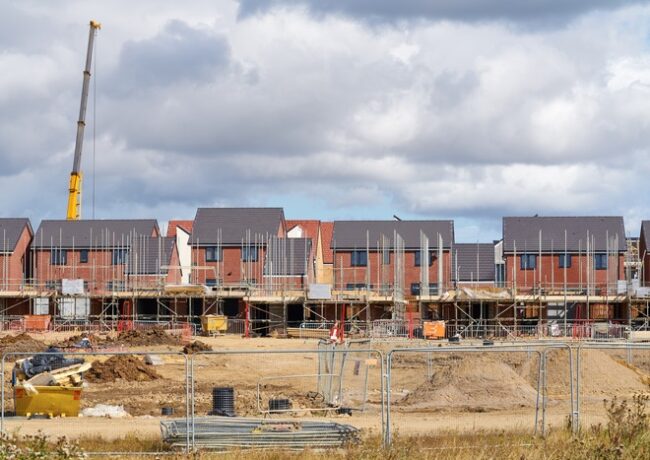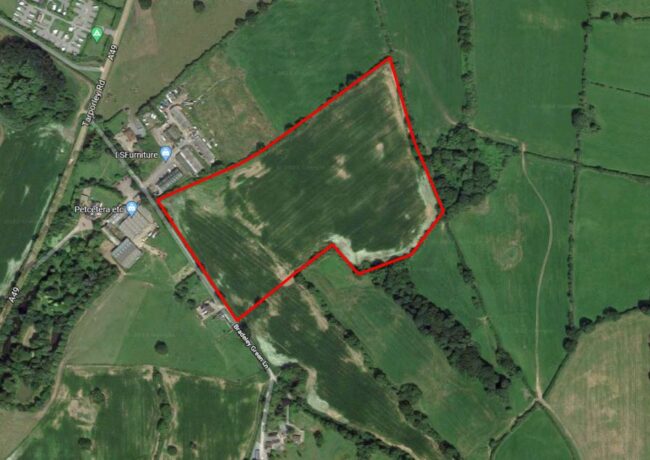Housing dominates Cheshire East planning agenda
Cheshire East Council is due to meet tomorrow to discuss houses planned on a range of contentious sites across the borough, with 400 homes put forward for approval and 275 homes due to be refused.
The strategic planning board on Wednesday 27 January will look at proposals from four housebuilders for large-scale schemes.
At Hawthorne Drive in Sandbach, Persimmon Homes has submitted a planning application for 144 houses on open countryside. The decision on the development has been delegated to the head of planning, and the Secretary of State has also received a request to intervene due to the location. However, council planning officers have said in a report ahead of the meeting that the scheme is appropriate and is recommended for approval.
The project has received 48 letters from residents, and objections from Sandbach Town Council, and two petitions signed by 461 people, criticising the size of scheme and impact on neighbours.
At Moss Lane in Macclesfield, Barratt Homes has proposed the construction of 150 houses on the site of the former Henshaw Waste Transfer Centre. The land had previously been earmarked by the council for employment uses.
The scheme includes 10% affordable housing and has been recommended for approval.
Mactaggart & Mickel Homes has also applied for an expansion to a previously approved scheme, from 360 houses to 450 houses, at a site off Newcastle Road in Shavington, Crewe.
The plot is on open countryside, but following the outline approval received in 2014 Cheshire East Council planning officers have described the increase in housing as “acceptable on design grounds”.
However, the proposals have received objections by Wybunbury Parish Council and Shavington Parish Council due to the size of the project and an increase in traffic.
At the same meeting, the council is due to refuse a planning application from Muller Property Group for 275 homes at Sydney Road, Crewe, as the plot is on open countryside designated as in the green gap.
A report ahead of the meeting said that “the adverse effects outweigh the benefits”.





The more I see of this sort of interminable merry-go-round of objections and SoS meddling the more I think planning should be removed from local democratic accountability and simply become a technocratic exercise with a national/regional ‘watchdog’ oversight. Particularly where there really is no leeway for politicians to move in terms of alternative locations or suitable housing land availability. The veneer of ‘localism’ just inflames people unnecessarily and adds costs. Still, there is the argument that, to paraphrase, democratic input into planning is the worst way of deciding land use, apart from all the other ways that have been tried! But seriously, there must come a point where a developer has answered all technical queries, the houses are needed and there should be a firm line drawn under any decision..
You’ve got to love objections to modest housing development: “My relatively recent house/development is a characterful and sustainable addition to the town; your new development is unsuitable urban sprawl”.
Do these people travel by train? Do they ever look out of the window and consider the paltry amount of urban space the British are squashed into?
By Sceptic
The solution is the opposite of the one you suggest, Sceptic.
Democratic accountability needs to be put front and centre in the planning process. To allow it to become solely a technocratic exercise would be to allow the system to be captured in its entirety by the development lobby whose interests, as we know, are at odds with increased supply, good design, community and sustainability. As broken as the existing system is, at least local people have a modicum of influence over it, however token it may be and however costly for applicants.
To put democracy front and centre would mean turning the planning system on its head. Engage all stakeholders in producing a vision and a set of detailed plans including properly planned infrastructure. Reform CPO to deliver the vision with house builders competing to develop plots.
House builders would hate this of course as it would reduce their margins but the upside is better places, higher quality, increased supply and much less conflict. And that is why it’ll never happen!
By Corporate Welfare Watch